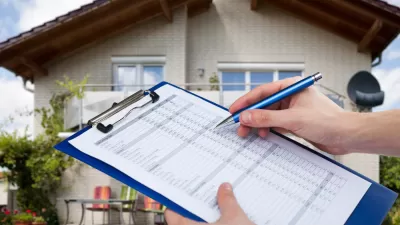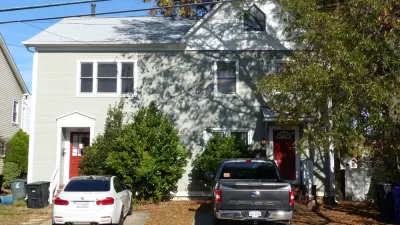According to a new study by the National Bureau of Economic Research, historical biases lead to minority homebuyers paying an average of 3.5 percent more for their homes than whites, reports Matt Bevilacqua.
Although the practice of overt housing discrimination based on race and religion was outlawed long ago, its effects live on in segregated neighborhoods and significantly lower homeownership rates among minorities. "Now, researchers have found another economic barrier to minorities who want to buy a house: Blacks and Latinos pay an average of 3.5 percent more for homes than whites, according to a National Bureau of Economic Research report that was re-released this month."
"According to the report, a minority family’s income, wealth and access to credit had little to do with the higher prices they paid for homes. And outright racism on the part of sellers didn’t play the obvious role that one might think."
"Instead, the racial disadvantage in homebuying appears seeded in historical biases," says Bevilacqua. "The heretofore low homeownership rates among blacks and Latinos could be having a lingering effect, leading to a catch-22 that prevents first-time homeowners from landing a fair price, even when purchasing from people of the same race."
FULL STORY: Black and Latino Homeowners Pay More Than Whites, Study Finds

Maui's Vacation Rental Debate Turns Ugly
Verbal attacks, misinformation campaigns and fistfights plague a high-stakes debate to convert thousands of vacation rentals into long-term housing.

Planetizen Federal Action Tracker
A weekly monitor of how Trump’s orders and actions are impacting planners and planning in America.

In Urban Planning, AI Prompting Could be the New Design Thinking
Creativity has long been key to great urban design. What if we see AI as our new creative partner?

King County Supportive Housing Program Offers Hope for Unhoused Residents
The county is taking a ‘Housing First’ approach that prioritizes getting people into housing, then offering wraparound supportive services.

Researchers Use AI to Get Clearer Picture of US Housing
Analysts are using artificial intelligence to supercharge their research by allowing them to comb through data faster. Though these AI tools can be error prone, they save time and housing researchers are optimistic about the future.

Making Shared Micromobility More Inclusive
Cities and shared mobility system operators can do more to include people with disabilities in planning and operations, per a new report.
Urban Design for Planners 1: Software Tools
This six-course series explores essential urban design concepts using open source software and equips planners with the tools they need to participate fully in the urban design process.
Planning for Universal Design
Learn the tools for implementing Universal Design in planning regulations.
planning NEXT
Appalachian Highlands Housing Partners
Mpact (founded as Rail~Volution)
City of Camden Redevelopment Agency
City of Astoria
City of Portland
City of Laramie





























